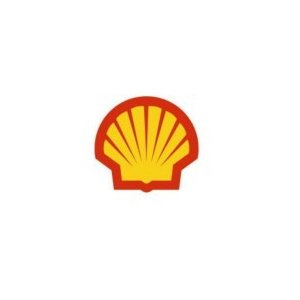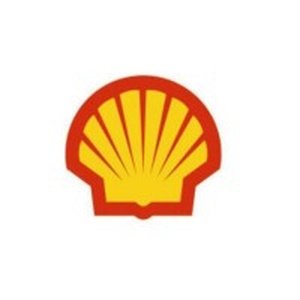Shell - Experts & Thought Leaders
Latest Shell news & announcements
DNV has awarded a detailed Approval in Principle (AiP) to Shell International Trading and Shipping Company Limited and Brevik Engineering for their design of a 74,000 cubic metres (cbm) liquid carbon dioxide (LCO2) carrier. The vessel is specifically designed for the Asia Pacific market to enable cost competitive transport of CO2. Development of larger vessels CCS is set to play a key role in decarbonisation of industry in Asia Pacific Carbon capture and storage (CCS) is set to play a key role in decarbonisation of industry in Asia Pacific. Emitting countries such as Japan, Korea, and Singapore are studying the possibility of shipping substantial quantities of their own CO2 to store locations within the wider region. This necessitates the development of larger capacity vessels than those currently planned for European CCS projects. Low-pressure cargo tank designs are a key enabler to commercialise these large LCO2 ships to enable transportation of CO2 at lower cost. Assessment of specific technical challenges This AiP from DNV covers a comprehensive scope across a wide range of disciplines, including the assessment of specific technical challenges for LCO2 carriers. Over 50 documents have been reviewed, with special emphasis on cargo tank design, including tank integrity analysis and suitability of material. Innovative low-pressure shipping technology The vessel is also designed for future onboard capture of CO2 from the main engine exhaust With dimensions capped at 290 metres in length and a 12-meter draft to access key East Asian ports, the designed ship mirrors the size of a 174,000 cbm LNG carrier. It features 15 cylindrical tanks that store 74,000 cbm of liquid CO2 at around −50°C and 6–8 barg, a low-pressure industry standard. The vessel is also designed for future onboard capture of CO2 from the main engine exhaust. This achievement marks a significant milestone in showcasing the viability of innovative low-pressure shipping technology for CO2. Innovation and collaboration in advancing solutions Mathias Sørhaug, Business Development Director CO2 shipping, DNV Maritime said: “We are pleased to be collaborating closely with Shell and Brevik Engineering on bringing this innovative gas carrier design to fruition." "This AiP underscores the importance of joint innovation and collaboration in advancing solutions that support the development of the wider CCS value chain. Scale is essential to drive down the cost of CCS and this work demonstrates the feasibility of large CO2 carriers with a low carbon footprint.” Feasibility of low-pressure shipping Lee Teng-Huar, Shell General Manager, Maritime Operations, Asia Pacific and Middle East commented: “After months of technical research, we are proud to have received this detailed Approval in Principle confirming the feasibility of low-pressure shipping with a design that is tender-ready." "We are excited to see how innovations like this can potentially enhance safety, achieve scalability and flexibility to drive cost competitiveness in the implementation of large-scale cross-border CCS.” Marine design and CO2 ship logistics AiP is an independent evaluation of a concept based on a predefined framework of requirements Evert Grødal, Managing Director of Brevik Engineering AS, is proud to bring the company’s experience in marine design and CO2 ship logistics to the development of this novel low-pressure CO2 carrier, where the key philosophy has been to reduce technological risk and ensure compliance with current regulations. “Based on a comprehensive technology study, conducted in collaboration with Shell, this innovative design is expected to set new benchmarks in safe, efficient, and sustainable large-scale CO₂ shipping,” he concluded. Feasibility of the design An Approval in Principle (AiP) is an independent evaluation of a concept based on a predefined framework of requirements. It confirms the feasibility of the design and ensures there are no significant technical obstacles hindering its implementation.
Methane Abatement in Maritime Innovation Initiative (MAMII) announced Royal Caribbean Group, a vacation industry pioneer with a global fleet, has become the latest member to join the cross-sectoral methane abatement initiative. The company is expected to provide valuable insights and support MAMII's ongoing efforts to develop and implement effective methane emission reduction strategies across the maritime industry. Reduction of methane emissions Addressing methane emissions is a key priority for the sector; as transitional fuels such as liquefied natural gas (LNG) are increasingly adopted, pioneers are focused on the reduction of methane emissions to reduce the environmental impact of the value chain. Established in 2022, and led by Safetytech Accelerator, MAMII unites industry pioneers, technology innovators, and maritime stakeholders to develop technologies that monitor, measure, and mitigate methane emissions from LNG-powered ships. Challenges to reduce environmental impact Royal Caribbean Group joins a growing roster of members including BP, CMA CGM, GTT Royal Caribbean Group joins a growing roster of members including BP, CMA CGM, GTT, Lloyd’s Register, Capital Gas, MSC, NYK Lines, and Shell, reflecting the initiative’s broad industry engagement. Steve Price, Programme Director at Safetytech Accelerator, commented: “Methane abatement is an urgent challenge as we work to reduce the maritime sector's environmental impact. Methane’s significant contribution to climate warming makes this an issue we cannot overlook. With Royal Caribbean Group on board, we gain a partner that shares our determination to drive innovation and collaboration in addressing this critical issue.” Net zero emissions by 2050 "We are excited to join industry leaders and collaborate on the MAMII initiative, which we believe will play a critical role in information sharing and tool development needed to manage methane emissions,” said Palle Laursen, executive vice president and head of marine, Royal Caribbean Group. “We are committed to industry collaboration and partnerships like this are key to achieve Destination Net Zero, our decarbonisation strategy to reach net zero emissions by 2050.” MAMII recently published a report examining the scale of methane slip in LNG-fueled vessels and the technologies available to tackle it. The report, available here, serves as a call to action for industry leaders to join the effort in combating methane emissions.
Eco Wave Power Global AB (“Eco Wave Power” or the “Company”), a global provider of onshore wave energy technology, is pleased to announce it has received the final Nationwide Permit (NWP) from the U.S. Army Corps of Engineers for its ground-breaking wave energy project at AltaSea’s premises at the Port of Los Angeles. This milestone marks a significant step forward in the development of Eco Wave Power’s pioneering wave energy project, which is set to become the first onshore wave energy installation in the United States. Eco Wave Power to install wave energy floaters The system will also include an energy conversion unit, comprised of two 20-foot shipping containers The permit, issued under NWP 52 for Water-Based Renewable Energy Generation Pilot Projects, authorises Eco Wave Power to install eight wave energy floaters on the piles of an existing concrete wharf structure on the east side of Municipal Pier One. The system will also include an energy conversion unit, comprised of two 20-foot shipping containers, which will be placed on the wharf deck and connected to the floaters. With the conversion unit already shipped and located on site, Eco Wave Power plans to complete installation by the end of Q1 2025. Agreement between Eco Wave Power and Shell In addition to securing the final permit, this achievement marks the completion of two key milestones under Eco Wave Power’s agreement with Shell International Exploration and Production Inc. (“Shell”), which is expected to boost the Company’s revenues in Q4, 2024 The agreement between the parties was announced in April 2024, according to which, Eco Wave Power and Shell will collaborate for the development of a wave energy pilot in the Port of Los Angeles. Now, with the permit in place, the parties will enter the execution phase of the project, as per the terms of the agreement. Eco Wave Power receives final Nationwide Permit (NWP) “We are thrilled to receive this final permit and move one step closer to bringing wave energy to the U.S.,” said Inna Braverman, Founder and Chief Executive Officer of Eco Wave Power, adding “This project represents not only a technological breakthrough but also a crucial step in advancing the global transition to renewable energy.” Inna Braverman continues, “We are deeply grateful for the support of AltaSea, the Port of Los Angeles, Shell MRE, and the U.S. Army Corps of Engineers as we work to make wave energy a key part of the sustainable energy landscape.” Advancing the commercialisation of wave energy The U.S. Department of Energy’s National Renewable Energy Laboratory estimates that wave energy has the potential to generate over 1,400 terawatt-hours per year - enough to power approximately 130 million homes. With this project, Eco Wave Power is advancing the commercialisation of wave energy as a reliable and clean source of renewable power, further strengthening its position as a leader in the industry.









